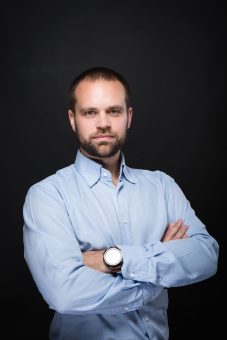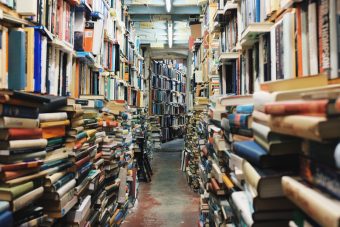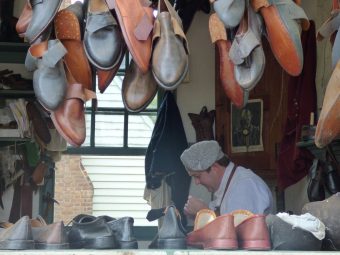
During the September and October of this year, the Academy of Circular Economy is being held in cooperation with the Serbian Chamber of Commerce and the company “CirEkon”, which suggests one of the changes that we should embrace in order to preserve the Earth. Plato taught his contemporaries philosophical thinking, and after a series of centuries and revolutions, mankind should adopt a new, different knowledge that will pave the way for a sustainable future in which there is no waste. “Take-Use-Make-Use …” is the perpetual motion of this approach that integrates the economy and waste management system.
The postulates on which the circular economy model is based, whether Serbia keeps pace with the world, how to attribute to waste the value it has in itself and how to make a production system that will allow us to develop on the only planet we have, we talked with Milan Veselinov, one of the organizers and lecturers at the Academy.
EP: How would you explain the term circular economy to a layman? What are its advantages over linear?
Milan Veselinov: Very important questions in the whole story about the circular economy (CE) are “Why” and “Do we need the CE?” It is clear that we used to fix the refrigerator, telephone and iron. Today, it does not pay off. The question is, does that make sense? Admit how many old cell phones you have in the drawer. You have in it: gold, copper and rare elements that are expensive and difficult to procure. And it will become more expensive and harder. The point of the circular economy is to start making products that will serve a person, moving from product ownership to its functionality.
This ensures that producers see benefits in the production of long lasting products, in saving needed electricity, and in a more careful selection of materials for production. Currently, our products are not designed for such an economy, we make products in which it is difficult to separate materials and they are used on the “Take-Make-Use-Throw away” principle.
The circular economy, if properly implemented, provides significant savings in the use of resources, up to 70 per cent, and energy up to 90 per cent. In addition, it keeps the environment cleaner, with no waste, since we always observe all the resources only as such.
EP: What are the postulates of industrial ecology and how can we achieve them in the context of the Serbian economy?
Milan Veselinov: Circular economy actually emerged from the idea of industrial ecology (IE). Within the industrial economy, the industry is considered as a part of the natural system, it is very easy to see the ingress of matter and energy into the industrial system, their origins, changes within the industry and exits from the industrial system. It is observed how these outflows affect both nature and the economy, and how it all affects the society as a whole.

Industrial ecology is essential to answer one question: How to make a production system that will allow us to live and develop on this planet, the only one we have? IE does not observe the planet emotionally, but rather rationally through the analysis of available resources for our devices, land for food production, energy sources for everything that a person wants to create.
Serbia is at the beginning of such a development and it is good that we know our position. There are two roads ahead of us. The first is much more expensive and it assumes neglecting of the trend of industrial ecology and circular economy development, and the other is more inventive, pragmatic, more effective and cheaper. An important difference between these two roads is the approach to innovation, from social, organizational, market-to-technological. The first approach neglects them and deals with the traditional values of the economy, the other approach innovates and pushes us along with the world scale of possibilities. The only question is who can recognize it – from companies to local governments, consumers or civil societies.
EP: The advantages of a circular economy are obvious, but how will you approach a person who does not want to change and who is trying to feed his family without extra costs?
Milan Veselinov: In every story, there are winners and losers. Today you almost do not have traditional crafts, such as coppersmith, quilt maker, dyer… The world is progressing and is waiting for no one. The Latin proverb says, “There is no shame in not knowing; the shame lies in not finding out,” and therefore we must constantly learn. There is no rest from learning if we want to progress. There is actually only a division between those who accept and make changes and those that will be brought about by a change.
EP: Many people have applied for the Academy of Circular Economics. Do you think that means that our people turn to a more sustainable future? What is the overall situation in the field of waste management in Serbia, in your opinion?
Milan Veselinov: Our goal is to form a critical group of people from companies who see the meaning of doing business through circular postulates and which will grow in time, improve and grow to the level when they will have enough power to change the system. CirEkon and the Chamber of Commerce of Serbia are absolutely committed to this as program implementers.

In the concept of waste management there is a so-called waste management pyramid, which states that the priorities are as follows: 1. Prevention of waste generation 2. Preparation for reuse 3. Recycling 4. Waste utilization in terms of energy recovery and 5. Landfilling. The CE is preparing a strategy for achieving priorities 1 and 2. Serbia is in the middle of editing the fifth priority and is slowly switching to recycling and incineration, energy recovery of matter. So, we lag 35 years behind Europe. In this situation, if we seriously focus on creating products that do not produce waste according to EU practice, how much do we actually need to manage waste?
However, the plan and practice are different categories and we need to provide sufficient capacity to treat waste, which will inevitably exist for another 20 to 30 years, does not cost too much and solves the problems of numerous landfills that are constantly poured into the ground and lead. More importantly, we should not tie our hands with excessive investments in the old technologies in the next 20 years, thus preventing faster development in line with the EU. The situation is such that we can not estimate exactly how much resources we can return to production through recycling, but also, even if we could, current laws do not allow this. People are working on this, and changes in laws are expected, recyclers are appearing and there are more and more of them.
EP: You often mention the power of the circular economy and the value of the circular economy. What value is created there?
Milan Veselinov: CE is a new way of creating value. Under its umbrella, we can expect that the products are made of materials that do not harm our environment and can be easily degraded in nature. The EU introduces rules that will motivate manufacturers to make such products, but also buyers to behave more responsibly towards the things they use.
The value is in: significant material savings, in energy savings, in cleaner sources of resources themselves, in the longer product lifetime, we can expect that the products will be increasingly shared, that we will have organizations that will return your worn out products to the factory instead to the landfill, a situation where you purchase resources from recycling centres instead of pulling them out of the mine, customers who create products online to their extent, we perceive that we will determine the price of a product by how much the product is harmful or contributing to your environment, how much it makes your day easier. In addition, we have more than 9 million tons of resources at the annual level, which we can, but we stop using them.
Benefits are also anticipated, re-awakening the refinery industry, repairs, spare parts, recycling, online sharing of products from screwdrivers to cars, a significant shift to services besides production, etc.
Prepared by: Jelena Kozbasic
Read the whole interview in the new issue of the Energy portal Magazine on CIRCULAR ECONOMY, September-November 2018


